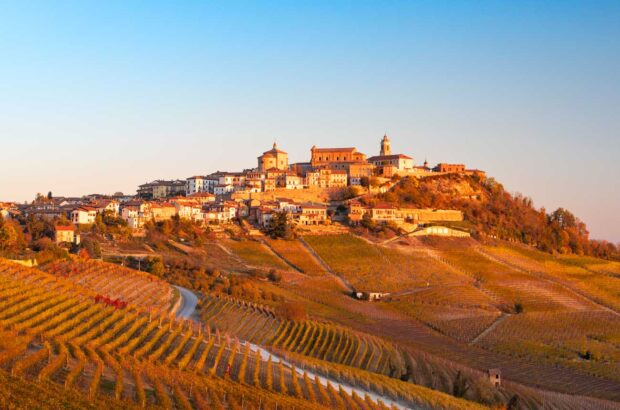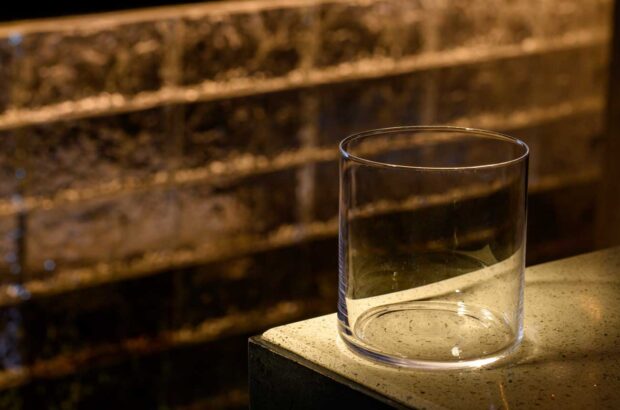Peter Mondavi discusses wine, age, the 'crazy' prices of premium Napa - and what it was like to be the 'quiet one' in the shadow of his big-spending older brother
While Robert Mondavi was celebrated as the Father of Napa, his younger brother Peter was ‘the quiet one’. The two started their wine careers together in 1944 when they persuaded their father to buy the Charles Krug Winery, but their working relationship soured and there were frequent clashes over wine and marketing. In his autobiography Robert records how he left the family business in 1965 after a fist fight with Peter over a fur coat bought for a visit to the Kennedy White House. The two were not reconciled until 2005.
Peter Mondavi stayed on at Krug, while Robert started the Robert Mondavi Winery and became one of the world’s most renowned winemakers.
At Krug Peter, ever the innovator, was the first to bring French Oak barrels to Napa Valley as well as cold fermentation techniques. He constantly blind tasted his competitors’ wines. ‘It keeps your production staff on the ball,’ he says. Over the last 10 years has replanted most of his 850 acres and spent over $9m retrofitting two of the original Krug structures including the redwood cellar, still used for their reserve wines.
Decanter caught up with him just after his 96th birthday in November, as the Charles Krug Winery turned 150. A few weeks prior to this interview Peter had opened a 1944 Charles Krug Cabernet Sauvignon, the first year the Mondavi brothers ever produced one. He also tasted a 1965 Cabernet. ‘They were surprisingly good,’ he said.
Decanter: Congratulations on reaching 96. Any secrets?
Peter Mondavi: I keep busy, have reasonable stamina, and I learned that if you don’t keep up a little exercise on a daily basis, you wear yourself out. I do 10 minutes daily and I still drink wine every night, mostly cabernet. (As proof of this he recently finished renovating his wine cellar at his house which contains about 3,000 bottled he estimates. And he goes to the winery every day, climbing the unattractive metal stairs to his second story office.)
What is the greatest challenge facing the Charles Krug Winery?
Taxes are killing the family business. It’s criminal. With politicians there’s no real control, it’s all gimme, gimme, gimme. They don’t live within their means. I have no love for the government and their methods since it is run by people who are not business people. And because of the taxes, I’ve spent over half my life gifting. What the hell, I’m 96 and I’ve had to give up an awful lot.
Is wine too expensive?
Basic wines no, but the premium wines are just crazy. There’s enough multi-millionaires who make so damn much money who created the problem. Wine became popular so they wanted part of the action. Yes, the quality has improved accordingly, but the price is out of line, it’s only for the few. And wages in the industry are too variable; wages are too low for vineyard workers, but it’s hard to raise those wages since the cost is passed on to the consumer.
Is Napa competing with France for Cabernet (Bordeaux) market share?
I think we’re in a different category. Both Napa and France have their unique characteristics. In Europe they don’t have the climate to allow the grapes to hang on the vine. But they have maturity of flavors; mature seeds, lower sugar and they still make a balanced wine. In Napa we have a different style which took me a while to get used to with the higher alcohol. We had a hard time in the early days of getting the higher sugars. If we got 24 brix we were happy and with that you get 13.9 alcohol. But our problem back then was that our seeds were green, not fully ripe and brown, so we got pucker on the wines. I overcame that by draining the juice before it got that bitter flavor at about 5 percent sugar. We did the best we could back then with what we had. Now wines are routinely 16 percent or higher, but if wine is properly made you don’t notice the higher levels. With extended maceration, cold soaking and over ripe grapes you pick up these lush flavors, smooth and soft, which is a big plus. I’ve noticed a fresh fruit element with some Napa cabs these days and I wouldn’t be surprised if they are adding younger vintages in. I tell Peter Jr. to keep experimenting with a few barrels because there are always new things to discover.
Is it a blessing or a curse to be a Mondavi?
I never think about it. I’ve lived with it so long. This idea of being popular, it didn’t phase me. Robert was entirely different from me, he was the promoter and he got carried away with his ego. He was a spender, but he made money too. He invested too much too fast, and you have to keep yourself in balance. I’m the quiet one, but that’s my nature.
When was the last time you saw Robert?
We were at his home a few weeks before he passed, and of course he’d had his stroke, so he couldn’t speak. He looked good, he looked relaxed and he managed to eat, so that was satisfying to me. We were having yearly Christmas gatherings for several years prior to this. It was tough to see him in poor health but at our age you learn to accept some of those things. With all the people in the world, well, we’re all different. We’d put aside our differences years ago.
Is Constellation doing a good job of carrying on the Mondavi legacy?
I don’t think they are doing the job of maintaining the prestige as Robert had done. It’s a business, just a cold business. With my family however there is still a love of the business.
Any final thoughts?
You have to love the wine business, period. If you don’t, then get out. Back when we started, in the 1930s, the wine business wasn’t a profession, it was an income. But people these days have become very educated and sophisticated. For many families wine is a daily beverage and it enhances their food. The biggest marketing change I’ve seen is specifically on television. Over the past several years so much wine is being served on TV shows and 90 percent is red wine, regardless of what food they’re serving. Of course red shows up better on TV.
Written by Michael Cervin







